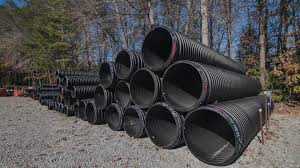Nov . 27, 2024 15:04 Back to list
High-Density Polyethylene Pipes for Efficient Sprinkler Systems and Irrigation Solutions
Understanding Sprinkler HDPE Pipe Products A Comprehensive Guide
Sprinkler systems are an essential component of modern agricultural and landscaping practices, providing efficient irrigation methods that promote healthy plant growth and conserve water. Among the variety of components used in these systems, high-density polyethylene (HDPE) pipes have gained immense popularity due to their durability, flexibility, and resistance to corrosion and chemicals. This article will explore HDPE pipes for sprinkler systems, including their benefits, applications, and installation considerations.
What is HDPE?
High-Density Polyethylene (HDPE) is a thermoplastic polymer made from petroleum. It is known for its high strength-to-density ratio, making it an ideal choice for a variety of applications ranging from packaging to construction. In the context of irrigation, HDPE pipes offer a robust and flexible solution that can withstand the challenges posed by environmental conditions.
Benefits of Using HDPE Pipes in Sprinkler Systems
1. Durability HDPE pipes are highly resistant to impact, weather, and environmental stress, ensuring a long lifespan. Unlike conventional materials like PVC or metal, HDPE does not rust, corrode, or become brittle over time.
2. Flexibility The flexibility of HDPE allows for easy installation and adaptability to different terrains. This is particularly advantageous in areas with irregular ground or when installation requires maneuvering around obstacles.
3. Lightweight HDPE pipes are significantly lighter than their metal counterparts, making them easier to transport, handle, and install. This can lead to reduced labor costs and quicker installation times.
4. Chemical Resistance HDPE provides excellent resistance to a variety of chemicals, making it suitable for use in irrigation systems that may expose pipes to fertilizers, pesticides, or other agricultural chemicals.
5. Sustainability Being recyclable, HDPE helps promote environmentally friendly practices. It can be reused or repurposed, reducing waste and contributing to sustainability efforts in the agricultural sector.
Applications of HDPE Pipes
HDPE pipes are widely utilized in various irrigation systems, including
- Agricultural Irrigation Farmers use HDPE pipes in field irrigation systems to ensure efficient water delivery to crops, leading to enhanced productivity and conservation of water resources.
sprinkler hdpe pipe products

- Landscape Irrigation In residential and commercial landscaping, HDPE pipes serve as conduits for sprinkler systems, providing optimal coverage and water efficiency for lawns, gardens, and public parks.
- Golf Courses and Sports Fields The flexibility and durability of HDPE pipes make them ideal for the intricate irrigation systems required for maintaining golf courses and sports facilities
.- Municipal Water Supply Systems HDPE pipes can also be used for potable water distribution, providing a safe and reliable means of transporting water to communities.
Installation Considerations
When installing HDPE pipes for sprinkler systems, certain factors should be taken into account
1. Planning A thorough assessment of the landscape and water requirements is crucial. Proper planning ensures optimal spacing and positioning of sprinkler heads and piping.
2. Pipe Sizing Selecting the appropriate diameter for HDPE pipes is essential to accommodate the required water flow rates. Consult with irrigation professionals to determine the best size for your specific needs.
3. Joining Methods HDPE pipes can be joined using several methods, including butt fusion, electrofusion, and mechanical fittings. The choice depends on the specific installation conditions and pipe diameter.
4. Burial Depth When burying HDPE pipes, ensure they are installed at a depth that protects them from temperature fluctuations and ground pressure, particularly in colder climates.
5. Maintenance Regular inspection and maintenance of the sprinkler system, including the HDPE pipes, will help identify any issues early and extend the system's lifespan.
Conclusion
Sprinkler HDPE pipe products represent an innovative solution for efficient irrigation in various agricultural and landscaping applications. Their durability, flexibility, and eco-friendliness make them a preferred choice for irrigation professionals and gardeners alike. By understanding the benefits, applications, and installation considerations of HDPE pipes, users can make informed decisions that will enhance their irrigation systems and promote sustainable practices in water management. Embracing such technologies is a step towards efficient resource use, ensuring greener, healthier landscapes for future generations.
-
High-Quality PVC Borehole Pipes Durable & Versatile Pipe Solutions
NewsJul.08,2025
-
High-Quality PVC Perforated Pipes for Efficient Drainage Leading Manufacturers & Factories
NewsJul.08,2025
-
High-Quality PVC Borehole Pipes Durable Pipe Solutions by Leading Manufacturer
NewsJul.08,2025
-
High-Quality PVC Borehole Pipes Reliable PVC Pipe Manufacturer Solutions
NewsJul.07,2025
-
High-Quality UPVC Drain Pipes Durable HDPE & Drain Pipe Solutions
NewsJul.07,2025
-
High-Quality Conduit Pipes & HDPE Conduit Fittings Manufacturer Reliable Factory Supply
NewsJul.06,2025

